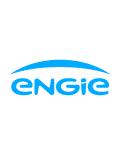Carbon transition-proof glass
1,300 degrees. That’s the minimum temperature of a furnace producing the raw material for glass. Today, 47% of European glass production is carried out in France. That represents more than 80 furnaces across the country! However, 70 to 80% of the industry's CO2 emissions come from the glass melting process. In France, that is equivalent to a third of the natural gas burned in industrial furnaces, i.e. 7 TWh/year. So it is crucial for the French glass industry to innovate to enable it to move towards carbon neutrality by 2050. Through our ENGIE Lab CRIGEN research centre and ENGIE Solutions, we are taking up the challenge and supporting the industry in its energy transition.
Which low-carbon energy should we choose?
Supported by ADEME (the French Environment and Energy Management Agency), the VERCANE R&D programme plans to study the different energy sources capable of sustainably powering glass production. To successfully implement this project, we have joined forces with two well-known manufacturers in the sector, Saverglass and Verescence, as well as the French leader in industrial furnace construction, Fives. Together, we are going to study three carbon-neutral energy options: hydrogen, bioresources and process electrification, as well as how to adapt existing furnaces to these three new energy sources.
The countdown has begun
VERCANE has given itself 18 months to complete the research phase, which will mobilise around ten researchers, and proceed with the prototyping of solutions. Available energy resources, on-site transport solutions... The aim is to have a 360° vision of the subject in order to be able to project towards the next stage: the deployment of industrial-scale demonstrators.

